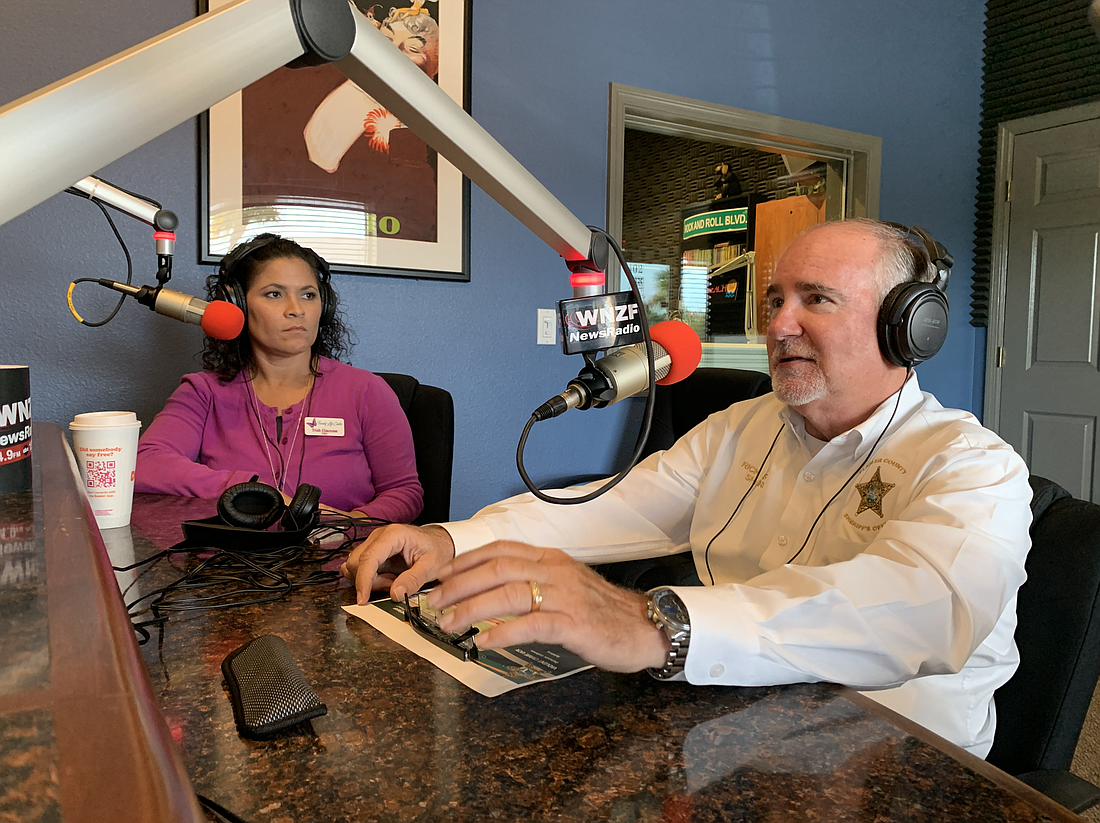- December 13, 2025

There were four domestic violence-related murders in Flagler County in 2017. That number prompted the Sheriff's Office to create a task force dedicated to preventing and responding to domestic violence cases.
For a while, domestic violence-related cases and injunction violations decreased. But COVID-19 seems to have reversed that trend, Flagler County Sheriff Rick Staly said on Flagler Broadcasting's "Free For All Friday" program on Oct. 22.
"Everything was going great: Domestic violence reports were down, arrests were down and then COVID came," he said.
This year, there's been a 4% increase in reported domestic violence offenses and a 14% increase in arrests.
The more notable rise in arrests, Staly said, "means it’s becoming more physical, because we’re able to determine who the aggressor is based on the evidence."
Violations of injunction have increased this year by 41%, Staly said.
The reported numbers are presumably an undercount due to victims' reluctance to report.
Trish Giaccone, chief executive officer of the local domestic violence shelter called the Family Life Center, noted that victims are often financially dependent on their abusers, and may be afraid of calling police who might then jail the family's primary earner, or, by their presence, affect the family's reputation in the community.
“There really is that reluctance, not only for the possibility of arrest, but also now the neighborhood is seeing law enforcement parked in front of their home," Giaccone said.
Staly recalled an incident early in his career as a deputy: A woman had called 911 because her husband was beating her. Staly and other deputies arrived, and the woman grabbed a glass lampshade and tried to hit Staly over the head with it. Such reactions aren't uncommon.
"The person that’s making the majority of the income is about to be arrested, and that’s not what they wanted," Staly said.
COVID-19-related job losses or reductions in work hours may have left some victims even more reliant on income from their abusers. Abusers often use finances in other ways to exert control over victims. Occasionally, Staly said, victims reach out to the Sheriff's Office about financial or emotional abuse, but it's hard to make an arrest in those cases.
For clearer cases with physical violence, he said, the FCSO has a "pro-arrest policy" to keep violence from escalating.
Giaccone said that preventing domestic violence starts young, with parents modeling healthy relationships.
People who fear that their own relationship to a family member is abusive should reach out to a mental health provider, she said.
People who suspect that others in their lives may be victims of domestic violence can help by being willing to ask people about how their lives are going, she said.
"Please don’t be afraid to ask someone how they’re doing and if they need support," she said. If they do need help, she added, share the Family Life Center's domestic violence hotline number: 386-437-3505.
Sometimes, Staly said, victims might need to be asked more than once before they're comfortable talking.
"They may tell you everything is fine 15 times," he said. "But the 16th time you ask that over the course of a few weeks or a couple of months, they might say, 'You know, I really could use some help.' And that's when you get the Family Life Center involved, or law enforcement. ... We don’t like making these arrests, but what we don’t like worse is going to a serious crime or a homicide."